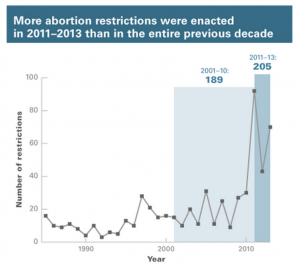Most biographies start with a person’s past. Presidential biographies not only go back to the president’s first job, or where he went to school, or even where he was born. No, the author usually starts with the president’s parents, or grandparents. In fact, usually he goes as far back as records allow.
Why? Why so much interest in people and places that existed and lived hundreds of years before the president?
Partly it’s because we want to trace the important influences on the president’s ancestors. We recognize that a president’s genes, characteristics, interests, personality, etc., were all shaped by his family history and even geography.
But it’s also because we want to see a plan. We want to be able to look back many years and sense the guiding hand of Providence in a person’s story, even before they were part of the story. Biographers look for decisions, events, and characters, both big and small, that demonstrate the Divine Hand preparing the way for this remarkable person’s arrival on earth. He’s looking for evidence of a plan, a pattern, or a sense of destiny that can be traced way back, through centuries, perhaps.
Presidential candidates often attempt this in their own autobiographies. They want us to connect them with the past, because they all want us to see that they were “predestined” to this, that this was part of a higher plan they had little or no say in. They’re saying, “I’m not just an accident or a coincidence! I have a story, a long and important story, that Someone else is writing for me.”
The Gospels
That’s why the first chapter of the first Gospel starts with a summary genealogy of Jesus’ ancestors. Although most people just skip over the first seventeen verses of Matthew and go straight to the baby scene, Matthew is saying: “Hey, this is important. Here’s a thumbnail sketch of this baby’s past. Now, go back, read the details, and see how this birthday is not just a combination of good luck and probability. Under God’s direction, many people, places, and events have prepared the way for this day. And if you really want to figure out who this baby is, what his purpose is, and what you should do with him, you have to go back and read about all that led up to this event.”
But not many do. Some might dip into the Psalms and Proverbs here and there, and perhaps read a couple of inspiring chapters in Isaiah from time to time, etc. But it’s like picking up the odd piece of a jigsaw puzzle, admiring it for a few minutes, then throwing it back in the box again. There’s rarely much attempt to put it all together, see the bigger picture, and identify the way that the Old Testament connects with the New, prepares for the New, sheds light on the New, and even makes sense of the New.
As this disjointed and fragmentary approach to the Bible leads to a disjointed and fragmentary spirituality, let me give you four reasons to study the Big Picture of both Testaments.
Read the rest of this article over at Credo’s Online Magazine.
